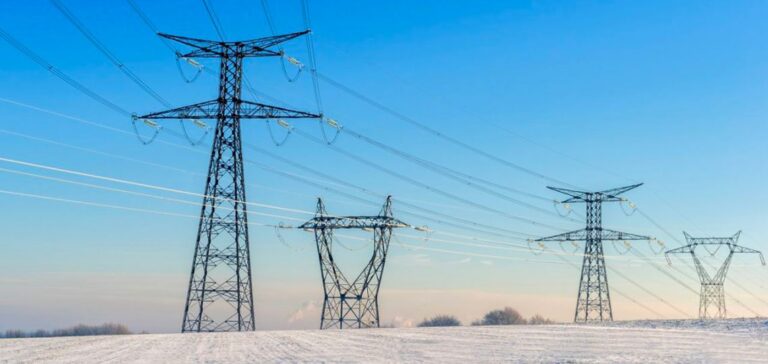France could experience energy difficulties to get through the winter. Like other European countries, France is going through an energy crisis. This is due to the reduction in Russian gas supplies and the shutdown of several nuclear power plants.
France loses its position as Europe’s leading exporter
For a long time the largest exporter of electricity in Europe, France was able to produce enough energy for its own consumption while supplying energy to its neighbors. The country was then able to provide nearly 15% of the continent’s total electricity production.
However, this year, France may not be able to supply its European neighbors with nuclear energy. Worse, the country may even have difficulty supplying its own consumption and may have to ration electricity.
Indeed, the year 2022 marks a turning point for electricity production in France. Since the start of the 2012 French readings, France has become a net importer of electricity. Nuclear power itself, the spearhead of French electricity production, is at its lowest level in 30 years in terms of production.
As a result, France has lost its position as Europe’s leading exporter of electricity to Sweden, the leading exporter, and Germany.
The aging infrastructure of the French nuclear fleet has led to the need for more repairs. In fact, this has also led to a decrease in productivity on the part of nuclear power plants.
However, the timing of these shutdowns is not good, as Europe and France are currently experiencing an energy crisis. Russian gas supplies have dropped significantly and France is 70% dependent on nuclear energy.
Electricity prices are exploding
In doing so, electricity and gas prices have exploded in recent months on the Old Continent. Electricity prices in France have reached historic highs. At the beginning of the month, the latter stood at more than €1,000/MWh. In comparison, the price in the same period a year earlier was €70/MWh.
These high prices are a threat to various economic sectors in France such as industry and agriculture.
Norbert Rücker, head of economics and new generation research at Julius Baer, said of electricity prices:
“Skyrocketing electricity prices pose an economic threat, with France’s nuclear problems seemingly becoming a bigger challenge than Russian gas flows.”
French nuclear power plants in difficulty
Today, the French nuclear fleet is facing failures. It consists of 56 nuclear reactors. Of these 56 reactors, 29 are shut down for maintenance work and checks. Indeed, corrosion problems have been identified. Jean-Bernard Levy, CEO of EDF, said that 12 of the reactors were shut down due to corrosion.
Some reactors have also reduced their production this summer to avoid overheating the rivers whose water is used to cool the reactors.
Currently, 57% of the nuclear generation capacity is out of service, so the production is 27 GW per day. According to EDF’s outage schedule, production should gradually return to 50 GW/d in December. However, for analysts, the market and union officials, this forecast is optimistic.
Usually, the nuclear production rate is around 400 TWh (400,000 GWh) and 10% is exported during the warmer months. Nevertheless, when consumption peaks occur in winter, France has to import electricity.
However, this year, EDF is forecasting an electricity production of 280 to 300 TWh, which is the lowest rate since 1993. Another important fact is that France used to export electricity in the summer, but now it imports it.
EDF’s forecasts called into question
As a result, some analysts are very pessimistic. Mycle Schneider, a Paris-based nuclear energy consultant, said:
“So the outlook for the winter is scary.”
Other analysts estimate that France’s electrical capacity will be 10 to 15 GW lower than EDF’s forecast through the end of January. This would mean that the country would need to import more electricity, while at the same time the rest of Europe would face energy shortages.
Moreover, if France were unable to compensate for its energy needs through imports, it could experience power cuts. This uncertainty is reinforced by the postponement of the start-up of some reactors to mid-November.
Emergency measures in France
The energy difficulties that France is experiencing could lead to exceptional measures by the government.
A parliamentary source, close to the government, said
“We should be able to recover a large part of the reactors that are currently offline. We can also ask the French to make efforts, especially to reduce peak loads.”
In the most severe cases, the government could also force the interruption of power to industrial and commercial consumers. Reducing heating in public buildings, turning off street lighting and implementing controlled power outages are being considered.
Virginie Neumayer, a member of the CGT, said about these cuts:
“The situation is really worrisome […] to say there will be no power outages is a very optimistic bet, unless we’re already sure it’s going to be a warm winter.”
Regarding the next winter, meteorologists are looking at the La Niña phenomenon to estimate whether the winter will be cold or mild. In particular, they estimate that the winter has a 60% chance of being colder than average for the period December/February 2022/2023.
As for EDF, the dilapidated state of the park raises questions. In fact, it remains to be seen whether the group, soon to be nationalized, should maintain its old plants or build new ones to replace them.
Especially since the ASN (Autorité de Sûreté Nucléaire), has stated that the resolution of the corrosion problems of the reactors could take several years. For its part, the construction of new power plants would also take several years, as was the case for the new generation reactor in Flamanville.






















